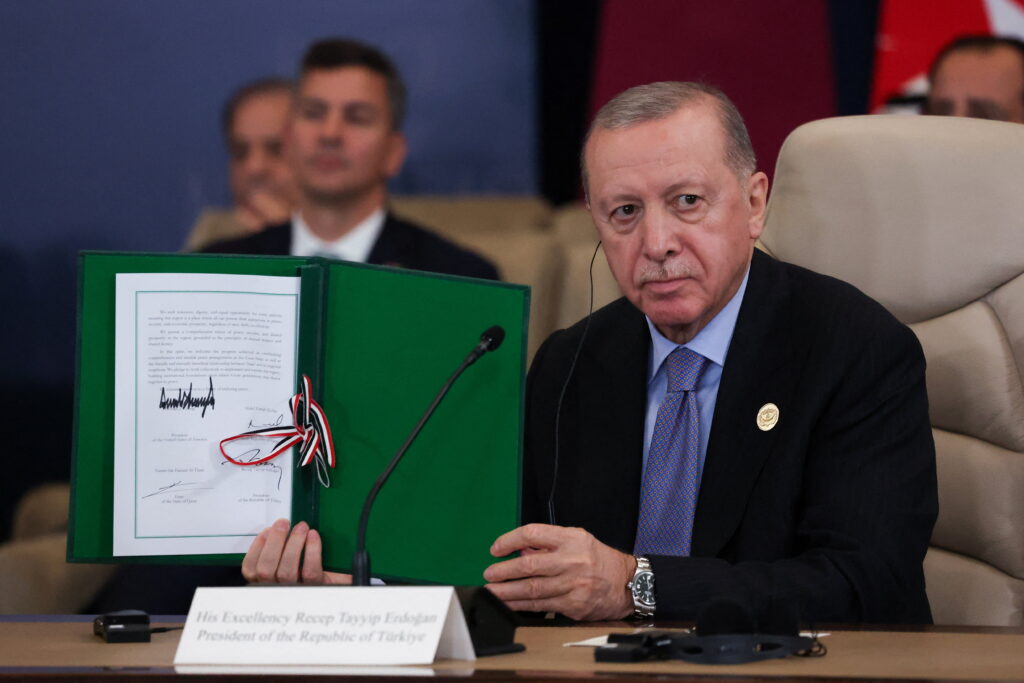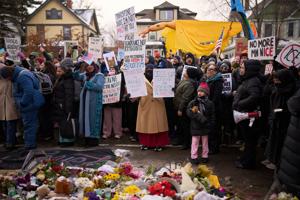Politics
Turkey’s Potential Role in Gaza Stabilization Sparks Debate

The United Nations Security Council has endorsed a resolution supporting US President Donald Trump’s twenty-point plan aimed at stabilizing Gaza. This resolution authorizes a transitional authority and the establishment of an International Stabilization Force (ISF) to ensure security and support demilitarization efforts in the region. In a significant development, the militant group Hamas has outright rejected the UNSC resolution and the proposed ISF, demonstrating a reluctance to disarm or relinquish its governing role in Gaza.
While the UNSC resolution has cleared the way for the ISF, critical questions remain regarding its composition and troop contributions. One key point of contention is the participation of Turkey, which Israel has sought to exclude from the force. Reports indicate that Turkey is prepared to contribute a brigade of approximately 2,000 personnel, including specialists in engineering, logistics, and explosive ordnance disposal. Ankara has stipulated that any ISF must guarantee a lasting cease-fire.
Turkey’s readiness to participate juxtaposed with Israel’s firm rejection highlights a significant geopolitical rift. Turkey has long criticized Israel and intensified its condemnation during the recent conflict in Gaza. Israel’s opposition to Turkish involvement stems from concerns regarding President Recep Tayyip Erdoğan’s connections to Hamas and the Muslim Brotherhood. However, excluding Turkey could complicate the stabilization efforts, as Ankara is seen as a key player in securing a cease-fire and played a notable role in the Sharm el-Sheikh Peace Summit held in October.
Geopolitical Implications of Turkey’s Involvement
The situation underscores the complexity of the geopolitical landscape. Israel’s objections are politically motivated rather than based on Turkey’s military capabilities. Despite having participated in peacekeeping missions in the past, including in maritime and Balkan contexts, Turkey’s involvement is still met with skepticism due to its historical tensions with Israel.
Egypt, which has fluctuating relations with Turkey, is expected to assert its influence over the role Turkish troops might play. The United Arab Emirates may also weigh in on the discussions, although its current stance appears to limit its own troop commitments. This uncertainty raises questions about the broader regional acceptance of any force that emerges.
The immediate needs in Gaza are considerable, focusing on engineering efforts to clear unexploded ordnance, debris removal, and restoring essential services such as power and water. Turkish units have a proven track record in these areas, similar to the capabilities of the Egyptian military. Although Turkey can make a compelling case for participation based on its military competencies, securing an active role remains uncertain.
Turkey’s ties to Hamas may prove to be its most significant asset in these discussions. Recent reports suggest that Turkey has engaged in sensitive negotiations regarding Hamas fighters, indicating its potential to facilitate a lasting cease-fire and contribute to disarmament efforts.
Coordination and Future Prospects
The establishment of the US-led Civil-Military Coordination Center (CMCC) in southern Israel has become a critical hub for coordinating aid and logistics following the cease-fire. There are indications that Turkey is positioning itself to work alongside the CMCC, which could provide a platform for its involvement without necessitating direct military presence in Gaza.
Turkey’s potential contributions could include offshore training and vetting of Palestinian police, as well as engineering and explosive ordnance disposal under UN auspices. Such approaches would allow Turkey to engage in humanitarian efforts while minimizing political friction. Additionally, quiet diplomatic efforts regarding sensitive issues, such as border deconfliction, could be facilitated through Ankara’s established channels.
While the UNSC resolution envisions a demilitarization process and civilian protection, the specifics of engagement rules and disarmament procedures will depend on follow-up arrangements under transitional authorities. Both Turkey and Egypt seem to favor a mandate that prioritizes humanitarian assistance and reconstruction efforts rather than aggressive disarmament during the fragile cease-fire.
Given the cordial relations between Trump and Erdoğan, it is plausible that the US administration may seek to navigate Israeli concerns and find a constructive role for Turkey within the ISF framework. Even if Turkish soldiers do not directly patrol the streets of Gaza, Ankara’s involvement in shaping policy and rebuilding efforts could significantly impact the stabilization mission.
As discussions evolve, it is crucial for Turkey and Israel to move beyond issuing demands and instead collaborate with the United States to carve out a meaningful role for Turkey that advances the objectives of the ISF.
-

 Top Stories1 month ago
Top Stories1 month agoRachel Campos-Duffy Exits FOX Noticias; Andrea Linares Steps In
-

 Top Stories1 week ago
Top Stories1 week agoPiper Rockelle Shatters Record with $2.3M First Day on OnlyFans
-

 Top Stories6 days ago
Top Stories6 days agoMeta’s 2026 AI Policy Sparks Outrage Over Privacy Concerns
-

 Sports5 days ago
Sports5 days agoLeon Goretzka Considers Barcelona Move as Transfer Window Approaches
-

 Top Stories1 week ago
Top Stories1 week agoUrgent Update: Denver Fire Forces Mass Evacuations, 100+ Firefighters Battling Blaze
-

 Top Stories1 week ago
Top Stories1 week agoOnlyFans Creator Lily Phillips Reconnects with Faith in Rebaptism
-

 Top Stories5 days ago
Top Stories5 days agoWarnock Joins Buddhist Monks on Urgent 2,300-Mile Peace Walk
-

 Entertainment5 days ago
Entertainment5 days agoTom Brady Signals Disinterest in Alix Earle Over Privacy Concerns
-

 Top Stories7 days ago
Top Stories7 days agoOregon Pilot and Three Niece Die in Arizona Helicopter Crash
-

 Top Stories4 days ago
Top Stories4 days agoCBS Officially Renames Yellowstone Spin-off to Marshals
-

 Health2 months ago
Health2 months agoTerry Bradshaw Updates Fans on Health After Absence from FOX NFL Sunday
-

 Sports4 days ago
Sports4 days agoSouth Carolina Faces Arkansas in Key Women’s Basketball Clash



